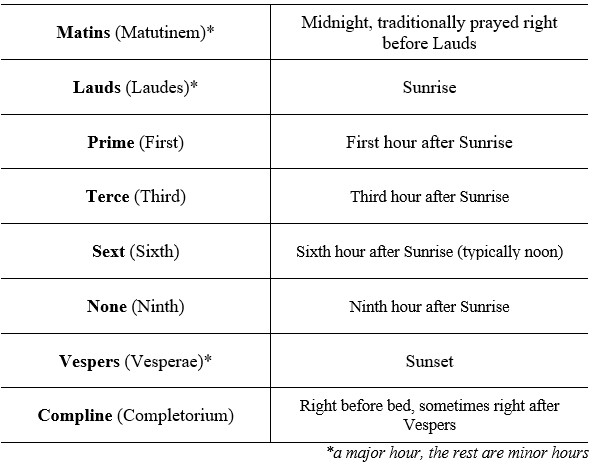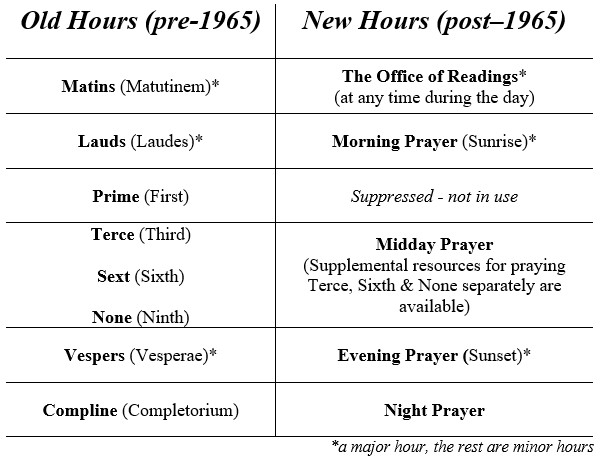In previous articles, I have written about the existence of the human soul, justifying it using Aristotelian and Thomistic logic. Expounding on the logic is difficult for a new reader, laborious for an amateur explaining it, and grueling for an academic trying to add to the already standing body of work around Aristotelian and Thomistic metaphysical ideas. Of course, the intersection of my academic studies and Aristotle or Aquinas really collide when speaking about language. While there is plenty to speak of within the Thomistic tradition about the nature of language, it is done in one sort of way.
Seemingly from age to age, it is enough to send the minds of philosophers spinning to contemplate the fact that the phenomenon of language is so uniquely intertwined with the human soul, indivisible from our nature as both rational and animal. Most of the energy that St. Thomas puts toward contemplating the nature of language and the mind deals with the nature of man’s reception of knowledge. The reception of knowledge is the grounds on which we formally understand that we do have souls, and rational ones at that. This fact, as O’Callaghan writes, is closely intertwined with St. Thomas’ understanding of the purpose of man.
“Not only is it the case that for St. Thomas our mental life is incomplete without its welling in the world of animals, plants, and inanimate objects, but perhaps even more striking is St. Thomas’s position that the created world of animals, plants, and inanimate beings is itself incomplete until it is taken up into the mental life of the human person who dwells within it. This mutual indwelling is for St. Thomas the perfection of the created order, a more perfect image and likeness of God” (Thomist Realism & the Linguistic Turn, p. 280-281).
Man’s teleos, final purpose, is to behold God as He truly is, for “final and perfect happiness can consist in nothing else than the vision of the Divine Essence” (Summa Theologiae, First Part of the Second Part, Q. 3, Art. 8) This is the Beatific Vision. God is a truly infinite being, infinitely higher in nature than we ever could be, and our purpose is to spend eternity beholding Him, coming to know Him. We could spend all of eternity beholding Him and still never find an end of wonder.
For Aquinas, the human soul is, primarily, receptive in nature. Its teleos is receptive, therefore Aquinas understands the whole of the soul as primarily being a receiver in and of the world, and more so a receiver of God. Thus, when exploring the soul’s relationship to language, Aquinas primarily engages in the notion of comprehension, the work of such contemplation leading to my aforementioned articles.
Yet as many know, this is not the whole of language. Sure, language is comprehended, but how does an integral view of an ensouled human explain the action of speech? How does it explain where languages come from and how they develop and change? There are many questions that we could get to, but for now my big question is this: how do we explain the phenomenon of language grammar within a Thomistic framework? Modern linguists all have their ideas about how words exist in the human mind, but a large part of my linguistic studies at university were not so much interested in how words are and become manifest in the human mind (though that was certainly of interest as well) but also how those words cooperated, whether in comprehension or production, to produce elements bigger than themselves.
Curious to my experience, there, was how the most successful language acquisition models would often sidestep some of these questions of the nature of grammar, deeming any one model or idea insufficient, ultimately claiming it wasn’t an important enough question to satisfy before looking on to classroom practices. It was especially odd since most of my other classes spent time looking at just how language is constructed in the mind, such as my syntax classes. It didn’t take long, though, to notice a particular obsession with my favorite acquisition theories that was common to my favorite philosopher: comprehension. From observing Stephen Krashen to Bill VanPatten and beyond into the larger community of language instructors that were hyper focused on enveloping learners with mountains of opportunity for purposeful comprehension, it was impossible to not connect my favorite academic subjects.
The theories expounded by these academics, the Input Hypothesis and the Input Processing theory, subordinate or eliminate grammar lessons in the language classroom when practically applied to curriculum. Overt grammar knowledge, they argue (and prove), is unnatural and isn’t effective for novices. What is? Many repeated innocuous exposures to significant forms of grammar in context.
So can Aquinas explain why these theories are true? Can Aquinas explain how the human mind learns grammar without overly explicit lessons? I firmly believe that a Thomistic Theory of Grammar would help explain and inform many courses of modern linguistic study.
The Proposition
Grammar exists as Aristotelian form knowledge in the intellect as abstracted relationships.
In Article #3 of this series, I presented the facts that words are equivalent to the passiones animae, the impressions made on the soul from reality around it. As an important beginning point, I wish to recap the way that words exist in our minds. From the perspective of comprehension, we see that a set of phonological or orthographical conveniences become associated with a distinct passion of, or impression on, the soul. The human subject perceives something in reality, or rather, something in reality makes an impression on the human senses, and the intellect becomes impressed upon by the senses themselves. While the true Aristotelian form of the perceived object never leaves itself, the very what-ness (quidditas) of the object becomes grasped at by the soul, and the impression can be called a passio animae. The act of receiving the passio and remembering the passio within the passive intellect becomes comprehension.
Now, in my classes and in the field of study of linguistics, grammar is classified as a unique branch of the reality of language, because it seems to be its own category. Suddenly one is not considering the abstraction of ‘dog’ or even the abstract motion of ‘eating’ but the strange application and rules of how these words work together. We do not say “Eating dog” or “Eat dog” or “Dog eat” but rather “The dog eats.” It is no surprise that multiple words get strung together, but the linguist studying grammar wishes to understand not only why we string words together in this specific way, but how we implicitly know and control this construction of language and how we know when to add or remove different linguistic affixes. Perhaps, even, the linguist wants to know why an incorrect construction of these elements leads to miscommunication. The average man does not overtly think about constructing his sentences, but simply communicates his observations, needs, desires, and inquiries. Even an educated man, though, can be quite confused by obscure sentence strings and sentences that ignore standard grammar conventions.
Returning to our information of St. Thomas Aquinas, we see that when words work together, there is in fact a single passio animae that results from the conveyed information. All of the individual components work together and create a single impression, a “complex concept” (Thomist Realism & the Linguistic Turn, p. 19-20) . Thus informed, one might ask where grammar fits in. It cannot be ignored, as clearly incorrect grammar leads to obstruction of comprehension, but done well or with little deviance it is unnoticeable.
Since language is particular, and not universal to all of mankind, it would be easy to propose that grammar somehow belongs solely within the material domain, in the brain, or, at the very least, as a sensory phenomenon. This would likely be akin to a behaviorist understanding of language and grammar, where there are positive associations built up with certain word or sound relationships, and negative associations with incorrect relationships. If I said to my friend “Nosotros hablas mucho bien español” I would suffer some negative reactions, but if I then corrected to “Nosotros hablamos muy bien el español” I would be received much more positively. The issue with this approach is that it ignores the fact that words and grammar conventions themselves carry meaning, which within the human mind properly belongs to the intellect. There’s a reason that behaviorist ideas of psychology haven’t aged well.
If grammar somehow belongs to the intellect, then we have to differentiate grammar and words. Words observe a singular entity, while grammar primarily entertains multiple entities. Here it is helpful to consider what sorts of substantial categories of things the intellect abstracts. Aristotle long ago distinguished between substantial forms and accidental forms, substantial being something like “human” whereas accidental is “red hair.” Within the concept of accidental forms, Aristotle described nine types, and one of the most significant here for us to understand is that of relation. Mere relationships are themselves abstracted accidental forms, beings, that the intellect entertains, separate even from the things that a relationship enjoins.
In Spanish, there are many suffixes for verbs which convey a range of information, from the time of the action and the subject that performed the action to subtle mood differences of the action (whether it for sure happened or whether it is desired that it happens). Certainly, then, the suffixes connect the primal identity of the word with more subtle applications of that word with other abstract notions of ‘past’ and ‘unfulfilled’ and ‘by us.’ At play is a distinct relationship. But this distinct relationship does not exist solely to that unique action in that one context. It can be applied to many words describing different actions, but it is the same abstract relationship at play.
When students learn a new language, it can be fascinating to learn about the novel grammar constructions of new languages. One of my favorites of these is one I learned of Irish Gaeilge, where possession cannot be expressed by a transitive verb. One must say that a certain object is “at” them. But by saying something is “at” one self, they have thus expressed possession.
Tá an uisce agam.
Is the water at-me.
I have the water.
Yet, as wild and foreign as the grammatical concept may propose itself to be, it is nonetheless still comprehensible to the student, even if only after many exposures to the various instances in which the language proposes it to the student. In my experience of teaching language, this is the part that students struggle with the most. It’s not necessarily learning that certain phonetic or orthographic pieces are constructed together, but that the abstract relationships proposed by the grammar are actually meaningful and appropriate.
Why can’t I just say that I LIKE the food Mr. Skipper? Why do I have to say that it pleases me? That’s so wEiRd.
So inevitably, grammar is a composition of certain abstract relationships that one language orchestrates very differently than another. In Spanish one of the most important relationships is between Action, Time, and Subject. The importance can be seen in not just the primacy in a phrase, but how convenient the expression of this relationship is in phonetics. It all gets conjoined in the very same word.
Fuimos – We left
It is not impossible for other languages to convey similar meanings, but the conventions of expressing those meanings look differently, and the attention given to those conventions and relationships take on different value as an abstract whole. The fact that prepositions are always connected to other subjects or objects means that in Irish, personal pronouns become subjugated as suffixes to the pronoun in question. Yet that is the key – the two separate elements of preposition and pronoun, in Irish, are subject to a grammar relationship that results in a phonetic merge.
Ag + mé
(At me)
= Agam
Where Grammar Comes From
This is a point I want to address with particular importance and stress. In an “I-make-me” world, we want to decentralize power into the individual, often to the detriment of our communal nature.
When a baby learns a language, they have to learn about the conventions of grammar and the abstract relationships that the language of their parents prioritizes. But the parents do not take the baby to school to expound on the nature of those relationships, and the baby still learns the language just fine. In general, it’s probably a common assurance that most parents are not able to expound on those relationships. For them, the language is as much innate given as it will be for their child.
Here I want to stress the obscure nature of the soul. You see, when Aquinas investigates the nature of the soul and talks about comprehension, he is never speaking about an overt process. He doesn’t talk about the intellect recognizing the act of cognition. He talks about the immediate and incognito effects of cognition. For Aquinas, comprehension is not really a voluntary action, it is mostly involuntary. Callaghan explains that, “in the case of intellect, a potentially intelligible thing extra animam, rendered actually intelligible by the agent intellect, moves the possible intellect to its act” (Thomist Realism & the Linguistic Turn, p. 214), where the motion of intelligibility and comprehension begins outside of the intellect. The intellect is capable of recognizing how it works, but it is a complex act of self-analysis, a reception of itself into itself, only after the primary acts of comprehension are already complete. So when one speaks of analyzing grammar, we are already speaking about things that we have understood, and are grasping at how it is possible for our intellects to have already done what they have. In other words, we do not know what the primary relationships motivating our language’s construction are until we are able to later reflect on them.
Initially, of course, humans did not just have their languages. They had to have come out of something else. What is innate to humanity as a source out of which language came? Perhaps philosophers like Naom Chomsky want to talk about the powers of Universal Grammar, where there are certain neurologically based constructs that predict the growth of language in the human person, and are evident in the analysis of syntax across languages. Later advocates, such as Ray Jackendoff, will of course be sure to tell us that such explanations are possible without resorting to a ‘magical’ view of the mind as soul. Yet, truly, it is the intellect and will, that which makes us rational creatures, that is the true substrate of the human person, which gives rise to language.
At some early point in human development, historically and not in any one person, groups of humans could have begun with artificially and intentional phonetic relationships that conveyed abstract relationships. One can think of how a string of words can convey grammatical notions:
Dog eat now but cat eat morning not now.
The children of those who came up with the more artificial constructions of language would receive them more naturally, and it would not be so difficult to use and explicitly remember those linguistic conventions. They might even feel so free as to build or synthesize more linguistic conventions and further their language into something more advanced. There is modern evidence of this behavior with the phenomena of pidgin and creole languages, where a certain community synthesizes two or more languages, oftentimes with difficulty or with novel structures and what would previously be considered unconventional, but then the children of that community acquire the synthesized language as its own and do so with ease, essentially creating a new language. To conceive of primitive human communities doing so without a previous linguistic base is not difficult. Certainly within three generations it is conceivable to think of a human community moving from not having a language at all to having an incredibly elaborate language. Yet, as the third generation carries on to the fourth, there is no need to overtly convey linguistic grammar conventions, if there ever was a need to do so.
Wherefore doth it import to us?
In the general process of abstraction, there is an observation of particulars that contributes towards a non-specific thing which is shared between all of them. In the case of grammar, I have appealed to something of a grammatical relationship that guides specific linguistic constructions. But, one may ask, why is that any different than the more recent tradition of understanding a linguistic ‘rule’? In other words, how is a rule different than a relationship?
Before even engaging in the specifics, I think the description of rule vs. relationship is already a tangible difference. One can think of rule as something with authority that imposes on another, that conveys overt control, and paints an image of very finely tuned divisions between correct and incorrect. Yet quite readily anyone who has spent time in the language classroom will be able to observe that the ‘authority’ of a rule is realistically only a façade, that overt knowledge of rules does not guarantee fluency in the language, and that there are always exceptions. In other words, while there is speak of grammar ‘rules’ it’s really difficult to maintain such an appearance. Instead, a relationship implies something that works dynamically between idea and user, even between ideas, that more often exists implicitly, and is much more forgiving, or even encouraging, of deviances from any norm.
More critically, the average grammar rules are often too dependent on the material elements of language. I can easily picture a Spanish textbook in my head which looks at grammatical categories that are based on purely orthographic and phonetic differences, such as the difference between –ar and -ir verbs. Yet there is no movement of difference in meaning when analyzing these categories.
Fruitfully one can look at these textbooks and see the relationships that stand out as foundational. Ironically they can be found when textbooks attempt to explain the rules, talking about why exceptions exist, what the goal of these different grammatical forms are, etc. When looking at the differences between –ar and -ir verbs, for example, one might end up instead contemplating the relationship between verbs and the present sense of their action as compared to the relationship between verbs and a future sense of their action. While the traditional rules are generally divided somewhat arbitrarily, understanding grammar as a set of relationships is a notion fraught with meaning and purpose. Instead of a learner being taught how to create “correct” phrases, they are instead oriented towards finding meaning and purpose in phrases, and are oriented towards creating meaning and purpose in production.
Now, I hear the critics crying out, “the lists and divisions may be arbitrary, but they help divide up what is a long and complicated list of deviations! There’s no other way to learn so much content! Textbooks can still be used in the classroom if they were to perhaps include more organization around these relationships!” And in a sense, they are correct. Trying to organize grammar lessons and principles around relationships, one may inevitably separate out –ar, -er, and -ir verbs because of the ease of demonstrating their orthographic and phonetic differences, but this returns us to our friends who are teaching language in input-intensive comprehensible classrooms.
Comprehensible Input
The goal of the Input Hypothesis in a practical application is to provide a language learner with a ton of rich and meaningful input, input that actually bears meaning and relevance to a student, so that the student comes to possess the language. The input is often context-rich, heavy with cognates at the beginning of education, and long and drawn out towards a lofty goal at the end of every lesson, filled with many repetitions along the way. It draws the student with purpose towards a third-party goal that immerses and guides the student through language growth the entire time.
Over the years countless studies around input comprehension have demonstrated that students exposed to this rich input perhaps do not develop a rich overt knowledge of textbook rules, but that they have a high implicit understanding of how a language works. They do not struggle in reading books (yes, full books) that target their language level, they engage in relatively fluent conversations, and otherwise have a quite natural possession of a language.
In other words, students taught in Comprehensible Input based classrooms, classrooms that might be considered ‘immersive’ and most often without textbooks or guided curriculum, come to possess a language much in the way that a young child comes to possess their first language(s), without overt grammatical knowledge of a language. They implicitly have formed an understanding of the way that grammatical relationships work within a language, possessing those abstract forms within their intellect that easily guide their comprehension and production of a language, no matter the format.
The Soul is Necessary to Explain Language.
In the end, we return to the main point of this article. At the beginning I asked: “how do we explain the phenomenon of language grammar within a Thomistic framework?” to which we have this answer:
Grammar exists as Aristotelian form knowledge in the intellect as abstracted relationships.
Since grammar in practicality is a set of organizing principles of language that relate two or more meaningful notions together, then those organizing principles, relationships, must exist somewhere that can implicitly exert a governing dominance over the words and affixes that need to be arranged together. Since it has already been established that words root themselves in the abstract formations of the intellect, then it follows that grammar relationships need to similarly take residence in the intellect. Once again we find ourselves needing philosophical logic of the human soul in order to explain the phenomenon of language.
Of course, while this doesn’t seem to have any practical applications, we see that it is incredibly relevant not only to scientists and academics who are trying to explore the nature of language and the forces that govern it, but also to those who teach and learn language. Before you say “I’m not taking a foreign language class!” I just want you to think about how you’re understanding the words of this article, and how you perhaps have taught your own children to speak. What about that word you saw last week for the first time and you had to google search its definition? Language acquisition is most effective, it has generally been documented, when set up with effective Comprehensible Input. As a whole, also, language knowledge is largely implicit, and this Theory of Grammar – a Thomistic Theory of Grammar, finally explains what is going on at the root of our human nature to make it all possible.


























